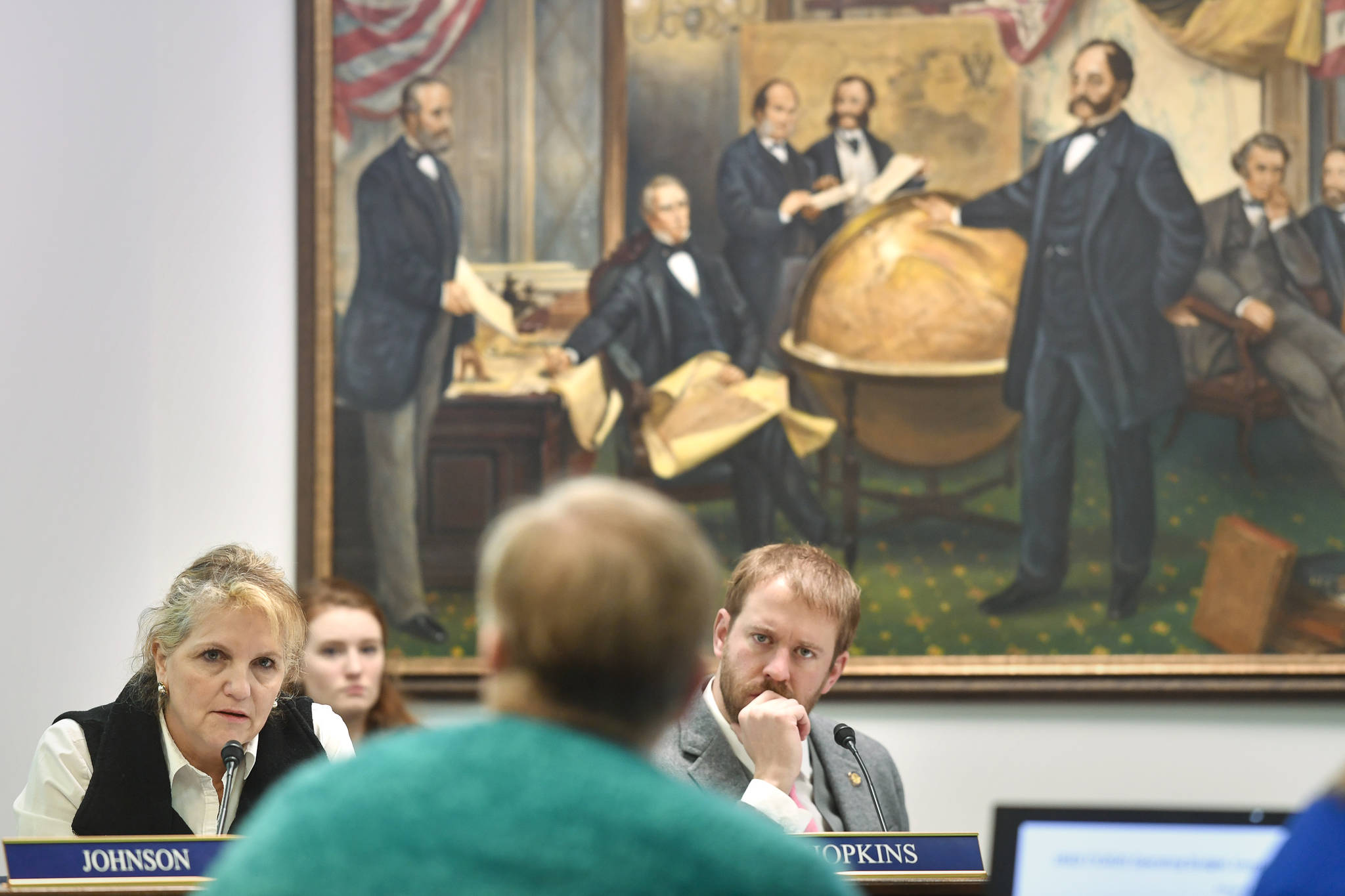The biggest issues heading into this year’s legislative session remain unresolved in the session’s final weeks, with Gov. Mike Dunleavy facing resistance to pieces of his agenda.
Lawmakers have yet to finalize a budget. The size of the check residents will get this year from the state’s oil-wealth fund, the Alaska Permanent Fund, is unsettled, as is the debate over the program’s future.
[A statewide poll shows what some Alaskans think about Dunleavy budget]
The Republican governor wants lawmakers to pass his package of bills related to crime and act on proposed constitutional amendments pitched as part of his fiscal plan. But he faces pushback, with a key House member wanting to focus initially on issues related to public safety with the broadest level of support and other lawmakers arguing that the push for constitutional changes may not be realistic.
While voters years ago approved a 90-day legislative session, that mark came and went with little acknowledgment earlier this month. Legislative leaders early on cast doubt on whether their work could be completed in 90 days, with Dunleavy releasing his budget a month into session and the House failing to organize until around that time. The constitution permits 121-day regular sessions, with an option to extend for another 10. The 121-day mark would be hit May 15.
Budget and dividend
The version of the state operating budget passed by the House and the one the Senate is working on reject the level of cuts proposed by Dunleavy. The House-passed budget did not include a permanent fund dividend amount, with House leadership saying that issue would be debated separately, later.
Debate over the dividend snarled the House’s deliberations on the budget last year. The $1,600 check that was politically agreeable on that side is what ultimately was settled upon. Debate this year, too, is politically fraught.
[Dunleavy unveils plan for PFD back payments]
When lawmakers last year decided to use permanent fund earnings, the pot used to pay dividends, to help cover government costs amid an ongoing budget deficit, the dividend began competing with other programs for funding.
Sen. Lyman Hoffman, a Bethel Democrat, said Tuesday that having government “take the first bite of the apple puts the dividend potentially at risk.” He said the split between what goes to government and what goes to dividends should be settled.
Dunleavy campaigned on following the formula in state law for a full dividend payout after three years of reduced payouts. The Republican has not said what he would do if lawmakers deliver a smaller dividend.
He has said he won’t be afraid to flex any of his constitutional powers, which include veto authorities. The Legislature can override vetoes if it musters sufficient support.
Crime bills
Dunleavy said Monday he was “imploring” lawmakers to move his crime bills, which deal with sex offenses, sentencing, pretrial and probation and parole. He said he wants to deal with “the criminal element” versus trying to address issues such as recidivism, preparing inmates for release and substance abuse. Those will be worked on, he said.
“But the people of Alaska, I believe right now, demand that we get these bills that we filed moving and out before the session is over,” he said.
Rep. Matt Claman, chair of the House Judiciary Committee, said each of Dunleavy’s bills is “massive.” Claman, an Anchorage Democrat, favors prioritizing, finding areas that broadly can be agreed upon and working longer-term on other areas.
Senate President Cathy Giessel said the Senate, which has been vetting the bills, and the House “have to reach agreement, and that’s what the next few weeks is about,” she said.
The Anchorage Republican expects lawmakers to act on crime bills of some kind.
Dunleavy said he would not rule out a special session if lawmakers don’t act on his bills.
Constitutional amendments
Dunleavy wants action on proposed constitutional amendments addressing taxes, the dividend and spending. Two-thirds support in each chamber is needed to send such proposals to voters.
Response so far has been tepid, though some, notably in the Senate, have shown interest in replacing in law an existing spending limit.
Senate Finance Committee Co-chair Bert Stedman said constitutional amendments are difficult to deliver, “otherwise we’d have the constitution changed every four years.”
• This is an Associated Press report by Becky Bohrer.

